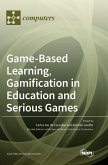After a historical review of the founders of so-called alternative pedagogies, we will examine various digital products or devices using digital technology in the context of games and ICT. Then, we will make an overview of existing Serious Games that can claim to be "Collaborative Serious Games", by analyzing their strong and weak points. This will allow us to consider the future of Collaborative Serious Games. What can we say about games like Trivial Pursuit or Question For a Champion, whose very principle is based on knowledge, or about role-playing games, which train us in a certain know-how (acting) or social skills? And what about when we add a collaborative aspect to the Serious Game? How can we use collaborative tools in the context of Serious Games? What role can the collaborative Serious Game play in the educational environment, in professional training, for the general public? What form should it take to obtain the expected educational added value? Have experiments already been conducted in this direction, have they succeeded or failed, and why?
After a historical review of the founders of so-called alternative pedagogies, we will examine various digital products or devices using digital technology in the context of games and ICT. Then, we will make an overview of existing Serious Games that can claim to be "Collaborative Serious Games", by analyzing their strong and weak points. This will allow us to consider the future of Collaborative Serious Games. What can we say about games like Trivial Pursuit or Question For a Champion, whose very principle is based on knowledge, or about role-playing games, which train us in a certain know-how (acting) or social skills? And what about when we add a collaborative aspect to the Serious Game? How can we use collaborative tools in the context of Serious Games? What role can the collaborative Serious Game play in the educational environment, in professional training, for the general public? What form should it take to obtain the expected educational added value? Have experiments already been conducted in this direction, have they succeeded or failed, and why?
After a historical review of the founders of so-called alternative pedagogies, we will examine various digital products or devices using digital technology in the context of games and ICT. Then, we will make an overview of existing Serious Games that can claim to be "Collaborative Serious Games", by analyzing their strong and weak points. This will allow us to consider the future of Collaborative Serious Games. What can we say about games like Trivial Pursuit or Question For a Champion, whose very principle is based on knowledge, or about role-playing games, which train us in a certain know-how (acting) or social skills? And what about when we add a collaborative aspect to the Serious Game? How can we use collaborative tools in the context of Serious Games? What role can the collaborative Serious Game play in the educational environment, in professional training, for the general public? What form should it take to obtain the expected educational added value? Have experiments already been conducted in this direction, have they succeeded or failed, and why?








